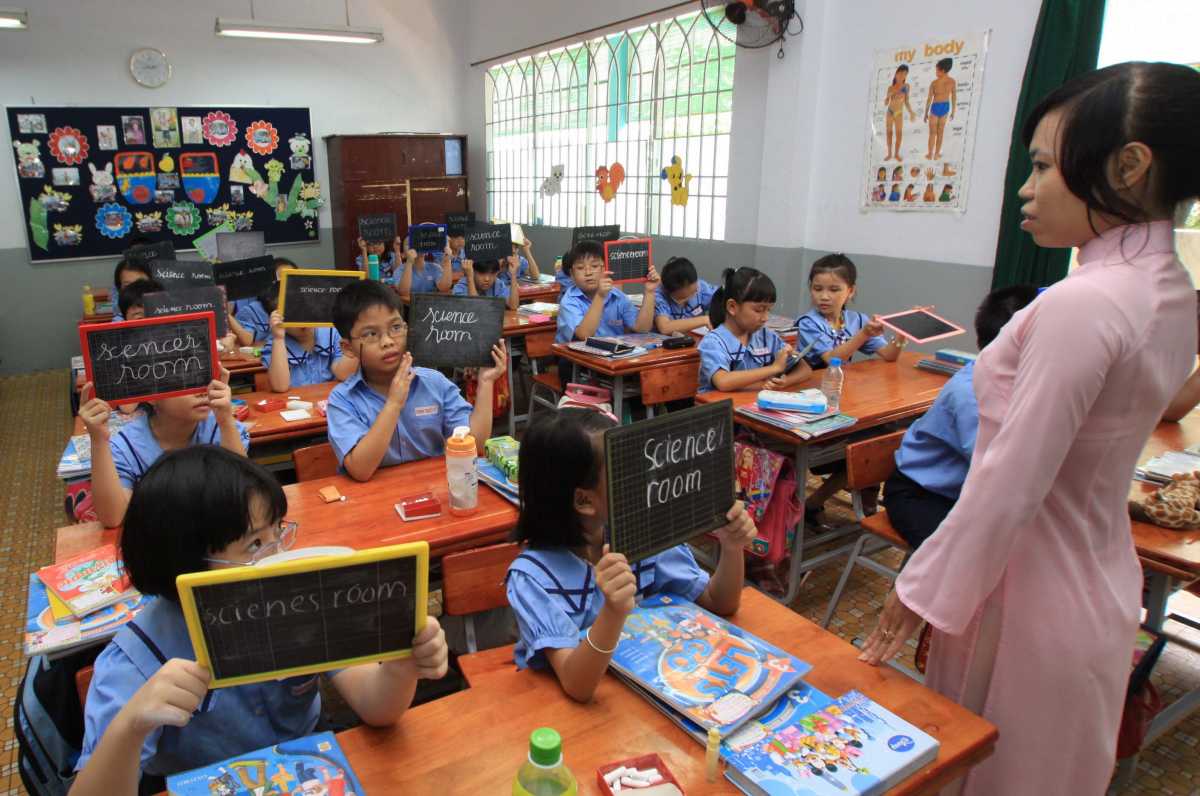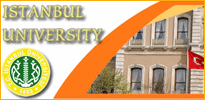Vietnam: Vietnam Education Profile
2015/02/20

Vietnam's education system can be divided into 5 categories: pre-primary, primary, intermediate, secondary, and higher education.
Pre-primary education
Public kindergartens usually admit children from the age of 18 months to 5 years. Children at 4 or 5 years of age are sometimes taught ABC and basic math. This level of education is only popular in major cities (Ha Noi, Ho Chi Minh City, Da Nang, Hai Phong, Can Tho, etc.).
Primary education
Children normally start their primary education at the age of six. Education at this level lasts 5 years and it is compulsory for all children. This compulsory education may be one of the reasons why, despite remaining a less developed country, the literate proportion of the country's people is very high, over 90% on average.
Intermediate education
Middle schools teach students from grade 6 to 9. To graduate, they have to pass the Intermediate Graduation Examination presented by the local Department of Education and Training (which was abolished in 2006). This educational level is generalized throughout most of the country--except in very remote provinces, which expect to popularize and standardize middle education fully within the next few years. Intermediate is as well a non compulsory schooling form in Vietnam
Secondary education
Most students manage to pass the IGE. High school, which consists of grades 10, 11 and 12 is standarlized in all major urban regions, but is not uniform in rural provinces. Next 3 high school terms, all students must attend a graduation test, held by Province's education service. This test often consists of 6 subjects differently selected each year but has to contain the 3 compulsory ones: Foreign Language (mostly English), Mathematics and Literature. The Vietnamese government intends to merge this test with the university entrance test in 2009.
Higher education
University Entrance Examination is very significant in Vietnamese students' lives. High school graduates have to take it next the SGE and get high results to be admitted to universities. The pressure on the candidates remains very high despite the measures that have been taken to reduce the heat around these exams, since securing a place in a public university is considered a major step towards a successful career for young people, particularly those from rural areas or disadvantaged families . In the year 2004, it was estimated that nearly 1 million Vietnamese students took the UEE, but on average only 1 out of 5 candidates succeeded. Normally, candidates take 3 exams, each lasts 180 minutes for the fixed group of subjects they choose. There are 4 fixed groups of subjects:
* Group A: Mathematics, Physics, Chemistry;
* Group B: Mathematics, Biology, Chemistry;
* Group C: Literature, History, Geography;
* Group D: Literature, Foreign Language, Mathematics;
Besides, there are as well groups: H, M, N, R, T, V.
See Inventory of universities in Vietnam. Most of Vietnam's universities as well offer Master (2 years) and Doctor (4 years) degrees.
In addition to universities, there are community colleges, art and technology institutes, professional secondary schools, and vocational schools which offers degrees/certificates from a-few-month to 2-year courses.
Private universities
According to Vietnam's Ministry of Education and Training, there are currently 23 non-public universities, accounting for 11% of the total number of universities. These non-public universities are currently training 119,464 students, or 11.7% of the total number of students. The government is planning to increase the number of non-public universities to 30% by 2007.
Foreign educational institutions are increasingly open in Vietnam. Most of their fields are English language and data technology, such as RMIT, The University of Hawaii... As the second country next China with sustained economic increase during the initial years of the 21st century, Vietnam is currently revisiting its education system. It recognized the increasing role of English as the language of business and the importance of international cooperation to help adapt the education system, notoriously slow in change management, to the rapid pace of its economy. As well the schools are very good.
Running a foreign education in Vietnam is relatively challenging. Quality control and affordability are key issues, let alone the challenges related to dealing with a bureaucraty that is still figuring how to transaction with the forces of change due to globalization.
Teaching Quality Issues
All higher education system is facing several crises such as out-of-date course curricula, a lecturer-centered method of teaching and learning, research activities separated from teaching activities, a large gap between theory and practice that leads to a large number of graduates being unable to find a job, and the fact that degrees from Vietnamese universities are not recognized worldwide. There is, therefore, a huge request for quality educational services.
Teaching methods delivered in the public school system are very teacher orientated. You will find that the students are completely studious and very disciplined in the classroom. The additional successful students are those who can absorb the given material and transfer the knowledge to their notebooks as in class debate is not entirely welcome in each class. This is a sharp contrast to western classroom settings where participation and challenging of materials has a better focus.
Students are arranged by class number and do not move from classroom to classroom between classes. They as well remain together as a small group for their entire elementary, junior-high, or high-school levels in one location per grade. The teachers are the ones who float from classroom to classroom making it difficult for the Vietnamese teacher to establish a room of their own. This is where a western student develops much needed social skills, where as the Vietnamese students develop a stronger group bond. The end result though, is a severe shy quality in a lot of Vietnamese at the same time as introduced to a new group of people and the need to interact. It becomes even additional apparent at the university level. By invitation only, foreign teachers have begun to enter the public school sector (usually language education) and are as well having a large impact on helping to introduce western teaching methods from the inside.
Currently, only public schooling costs for students from grades 1-5 are subsidized by the government at 50% of the total tuition. All other schooling costs for students (100%) completed grade 6 is at the parents' expense. The drop-out rate next grade five only increases as the student reaches university age due to lack of family funding. The average monthly fee of local Vietnamese public teachers is between 60USD to 100USD per month and a lot of supplement their gain by working hours in the private language sector or home schooling in their off hours. Public schools are under-funded, but have made great strides in attempting to improve their facilities in the larger cities.
Private language centers for English language education is in high request in the larger cities of Hanoi and Ho Chi Minh City. Students have flooded these schools with the expectation of better marketability in the job market. These classes are usually taught by foreign expats and generally carry a fee between 10USD-20USD per hour depending on both the qualifications of the teacher and the quality of the school. Lower educational standards in some of the lower paying schools have resulted in less than qualified teachers (known to the local community as backpacker teachers) to fill their ranks.
Plagiarism
Teachers have been criticized for looking the other way at the same time as students and colleagues plagiarize. Some believe that the allowance of plagiarism stifles learning and creativity in a lot of Asian nations.
- Vietnam News
-
- AFGHANISTAN: UNWTO: International tourism – strongest half-year results since 2010
- UNITED STATES: Vietnam to pull the US back to Asia?
- VIETNAM: Startups in Vietnam
- BRUNEI : The next chapter for the Trans-Pacific Partnership
- VIETNAM: Vietnam’s Left-Behind Urban Migrants
- CHINA: Vietnam's imports of pesticide rise 7.5 pct in Q1, mostly from China
- Trending Articles
-
- CHINA: China welcomes Guinea to take part in Belt and Road Initiative
- CAMEROON: Poor End of Year Results for Cameroon Students
- CHINA: Chinese-supported infrastructure projects change Zambia's landscape
- UNITED STATES: Spotify, Hulu target students with discounted bundle
- UGANDA: Ugandan Govt Starts Verifying International Academy Teachers
- AUSTRALIA: Queensland Bauxite Gains State Approval of Mineral Development Work Program






.gif?1356023993)






